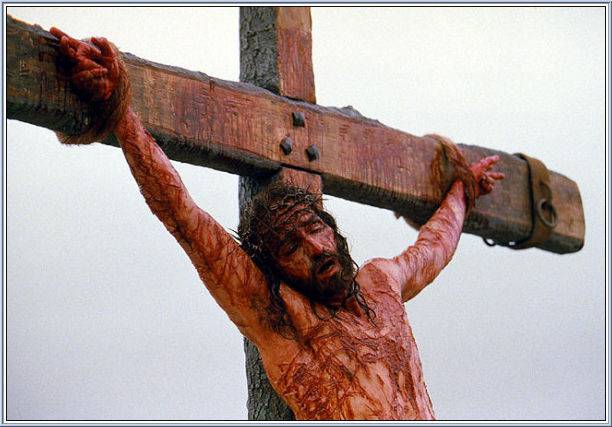DEVOTION OF THE LAST SEVEN WORDS OF JESUS CHRIST ON THE CROSS
FIRST WORD
"FATHER, FORGIVE THEM, BECAUSE THEY DO NOT KNOW WHAT THEY DO" (Lk 23,34)
The first word that Jesus utters is an invocation of forgiveness which he addresses to the Father for his crucifixors. God's forgiveness means that we dare to face what we have done. We dare to remember everything about our life, with failures and defeats, with our weaknesses and lack of love. We dare to remember all the times we have been mean and ungenerous, the moral baseness of our actions.
SECOND WORD
"IN TRUTH I TELL YOU: TODAY YOU WILL BE WITH ME IN PARADISE" (Lc 23,43)
Tradition has been wise to call him a "good thief". it is an appropriate definition, since he knows how to take possession of what is not his: "Jesus, remember me when you enter your kingdom" (Lk 23,42:XNUMX). He achieves the most amazing blow in history: he obtains Paradise, happiness without measure, and he obtains it without paying to enter it. How can we all do it. We just have to learn to dare the gifts of God.
THIRD WORD
"WOMAN, HERE'S YOUR SON! THIS IS YOUR MOTHER! " (Jn 19,2627:XNUMX)
On Good Friday there was the dissolution of the community of Jesus. Judah sold him, Peter denied him. It seems that all of Jesus' efforts to build a community have failed. And in the darkest moment, we see this community born at the foot of the cross. Jesus gives the mother a son and the beloved disciple a mother. It is not just any community, it is our community. This is the birth of the Church.
FOURTH WORD
"MY GOD, MY GOD, WHY DID YOU LEAVE ME?" (Mk 15,34)
Suddenly for the loss of a loved one our life appears to us destroyed and without purpose. "Because? Because? Where is God now? ". And we dare to be terrified to realize that we have nothing to say. But if the words that emerge are of absolute anguish, then we remember that on the cross Jesus made them his. And when, in desolation, we cannot find any words, not even to shout, then we can take his words: "My God, my God, why have you abandoned me?".
FIFTH WORD
"I SETE" (Jn 19,28:XNUMX)
In the Gospel of John, Jesus meets the Samaritan woman at a well of the patriarch Jacob and says to her: "Give me a drink". At the beginning and end of the story of his public life, Jesus asks us insistently to satisfy his thirst. This is how God comes to us, in the guise of a thirsty person who asks us to help him quench his thirst at the well of our love, whatever the quality and quantity of such love.
SIXTH WORD
"EVERYTHING IS DONE" (Jn 19,30)
"It's done!" The cry of Jesus does not only mean that everything is over and that he will now die. it is a cry of triumph. It means: "it is completed!". What he literally says is: "It is made perfect" At the beginning of the Last Supper the evangelist John tells us that "having loved his own who were in the world, he loved them to the end", that is, at the end of his possibility. On the cross we see this extreme, the perfection of love.
SEVENTH WORD
"FATHER, IN YOUR HANDS I DELIVER MY SPIRIT" (Lc 23,46)
Jesus pronounced his last seven words which invoke forgiveness and which lead to the new creation of the "Dornenica di Pasqua". And then he rests waiting for this long Saturday of history to end and finally Sunday without sunset to come, when all humanity will enter into its rest. "Then God on the seventh day completed the work he had done and stopped on the seventh day from all his work" (Gen 2,2: XNUMX).
The devotion to the "Seven words of Jesus Christ on the cross" dates back to the XII century. In it are gathered those words that according to the tradition of the four Gospels were pronounced by Jesus on the cross in order to find reasons for meditation and prayer. Through the Franciscans it crossed the whole Middle Ages and they were connected to the meditation on the "Seven wounds of Christ" and considered remedy against the "Seven deadly sins".
A person's last words are particularly fascinating. For us, being alive means being in communication with others. In this sense, death is not only the end of life, it is silence forever. Therefore what we say in the face of the impending silence of death is particularly revealing. We will read with this attention the last words of Jesus, such as those announced by the Word of God before the silence of his death. These are his last words on his Father, on himself and on us, which precisely because they have the last ability to reveal who the Father is, who he is and who we are. Do not swallow these last sects the grave. They still live. Our faith in the Resurrection means that death was unable to silence the Word of God, that he broke forever the silence of the tomb, of any tomb, and that for this reason his words are words of life for anyone who welcomes them. At the beginning of Holy Week, before the Eucharist, we hear them again in the adoring prayer, so that they prepare us to welcome the gift of Easter with faith.
